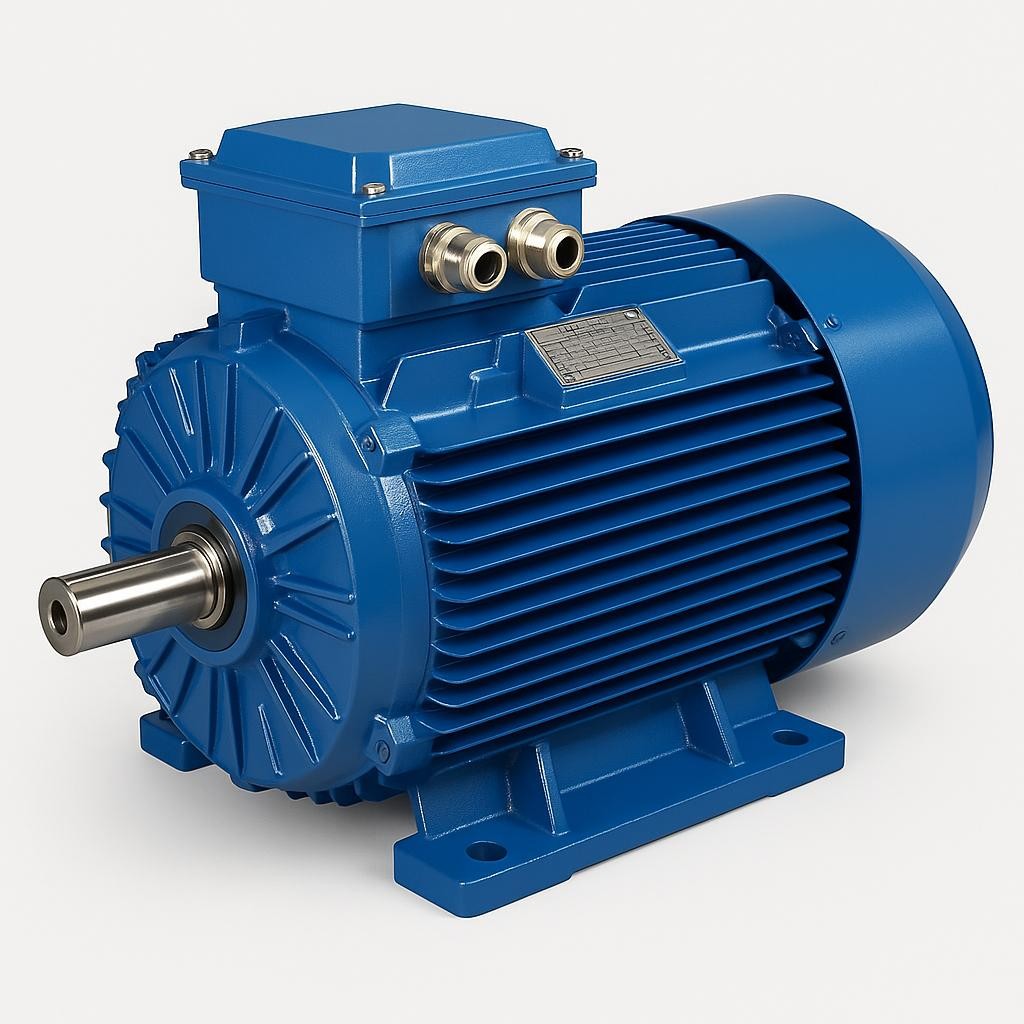AC ELECTRIC MOTOR
Contact: +90 (542) 666 11 11
AC (Alternating Current) electric motors are among the most commonly used types of motors in a wide range of applications, from industrial systems to household appliances. These motors convert electrical energy into mechanical energy, powering various machines. AC motors are known for their low maintenance requirements, high efficiency, and durability. Additionally, they are highly flexible due to their ability to operate across a wide range of power ratings and speed control systems.
Basic Working Principle of AC Electric Motors
AC electric motors operate using alternating current. The direction of alternating current continuously changes, generating the magnetic field required to rotate the motor’s rotor. AC motors consist of two main components: the stator and the rotor. The stator creates a fixed electrical field, while the rotor interacts with this field, causing it to rotate. This rotation provides the mechanical movement required by external mechanisms.
Types of AC Electric Motors:
-
Induction (Asynchronous) Motors:
Induction motors are the most common type of AC motor. They work by inducing a current on the rotor via the magnetic field created by the stator. These motors are known for their low cost and durability, though their speed is fixed, and controlling speed can be more challenging. -
Synchronous Motors:
Synchronous motors operate where the rotor speed exactly matches the speed of the magnetic field generated by the stator. These motors are typically used for high-speed applications and offer stable performance. Synchronous motors are also advantageous for providing high efficiency and torque. -
Universal Motors:
Universal motors can operate on both AC and DC power sources, commonly found in household appliances and small devices. They are known for their ability to run at high speeds and compact design, though they typically require more maintenance.
Advantages of AC Electric Motors:
-
Low Maintenance:
Due to their simple design, AC motors require minimal maintenance. Induction motors, in particular, are long-lasting with frictionless operation. -
High Efficiency:
AC motors are highly efficient in energy conversion. Their efficiency helps reduce energy costs and minimize environmental impact. -
Flexibility and Versatility:
AC motors come in various power and speed ranges, making them suitable for a wide array of applications, such as HVAC systems, pumps, and fans in industrial settings. -
Reduced Heat Generation:
AC motors optimize energy consumption, generating less heat. This extends the motor's lifespan and ensures efficient operation. -
Eco-Friendly:
AC motors offer environmentally friendly solutions by reducing energy consumption. Their high efficiency helps reduce carbon emissions, contributing to sustainability goals.
Applications of AC Electric Motors:
AC electric motors are used in a wide variety of applications. They are particularly common in the following fields:
-
HVAC Systems: Used in fans, compressors, and pumps for heating, ventilation, and air conditioning (HVAC) systems.
-
Industrial Machinery: Applied in pump systems, conveyor belts, and other heavy industrial machinery.
-
Home Appliances: Found in devices like vacuum cleaners, mixers, and washing machines.
-
Electric Vehicles: AC motors are used in electric vehicles and transportation systems.
-
Food Processing and Production Facilities: Widely used in food production and packaging systems.
In Conclusion:
AC electric motors play a critical role in industrial and commercial applications due to their wide range of uses and high efficiency. With flexibility, durability, and low maintenance needs, they offer an ideal motor solution for any business. AC motors, with their ability to operate at various power levels, provide an energy-efficient and long-lasting option for all kinds of applications. For businesses aiming to save energy and achieve efficient operation, AC motors are the ideal choice.
You can purchase all of these motors from DRG MOTOR.
 English
English
 Türkçe
Türkçe

